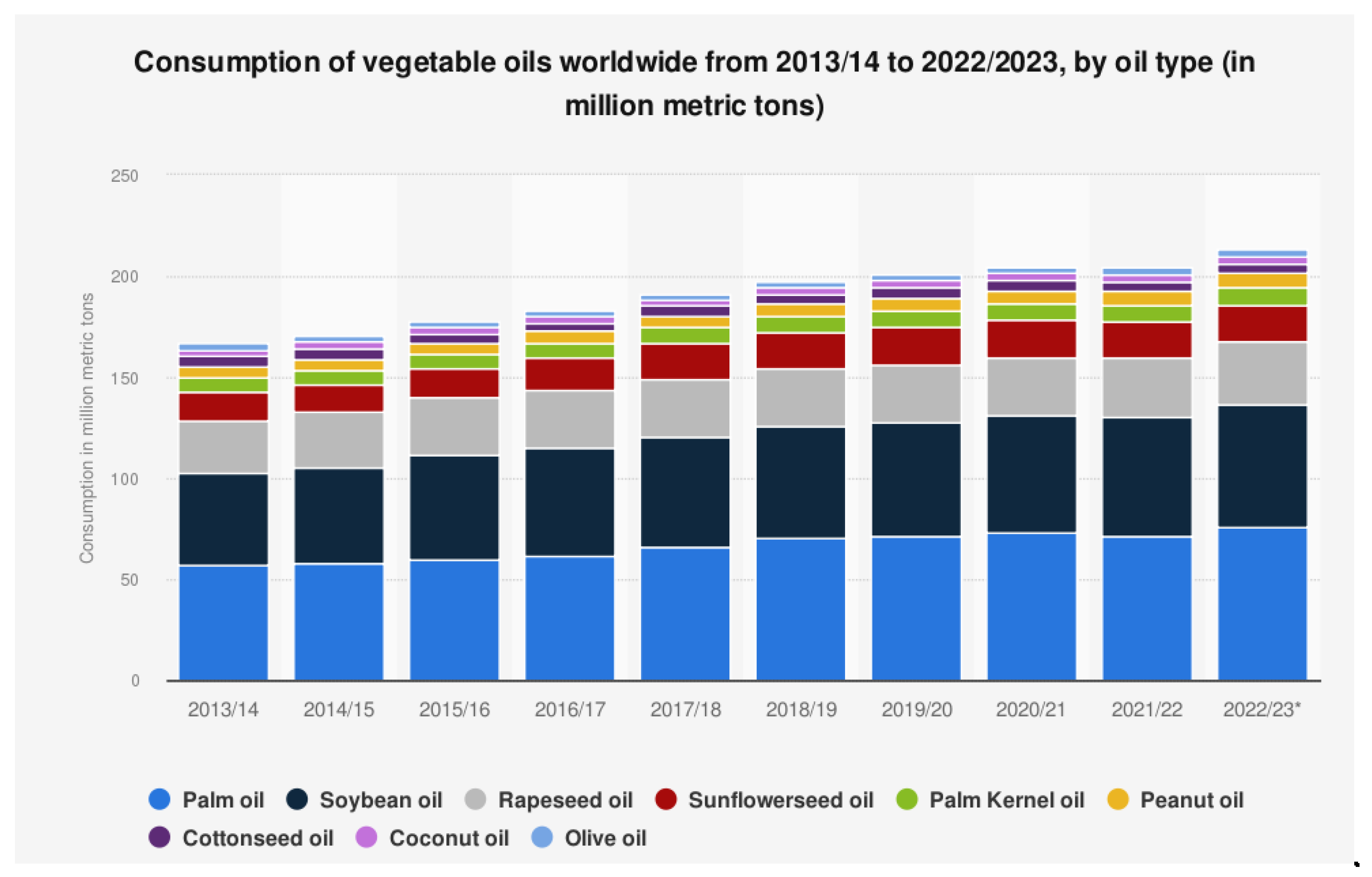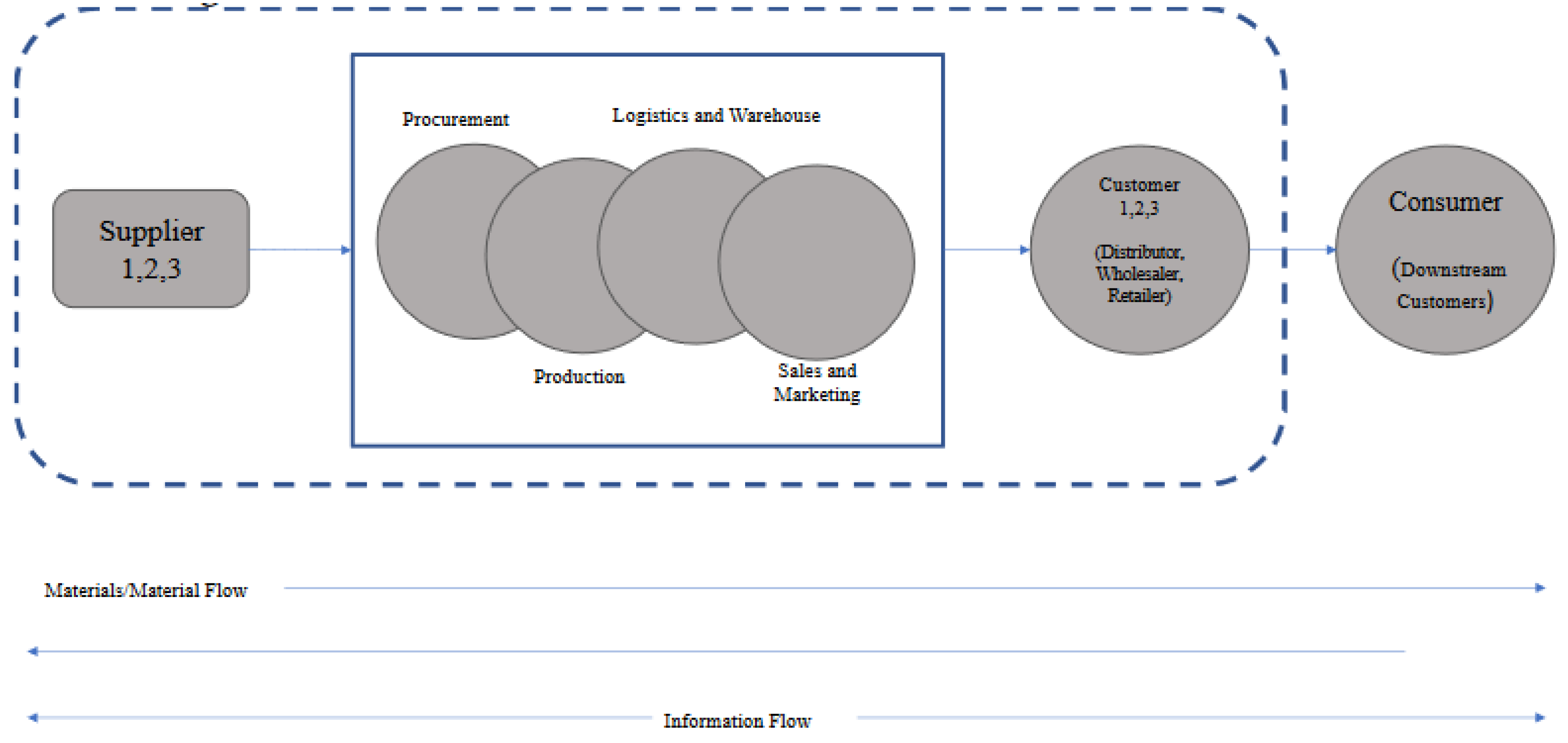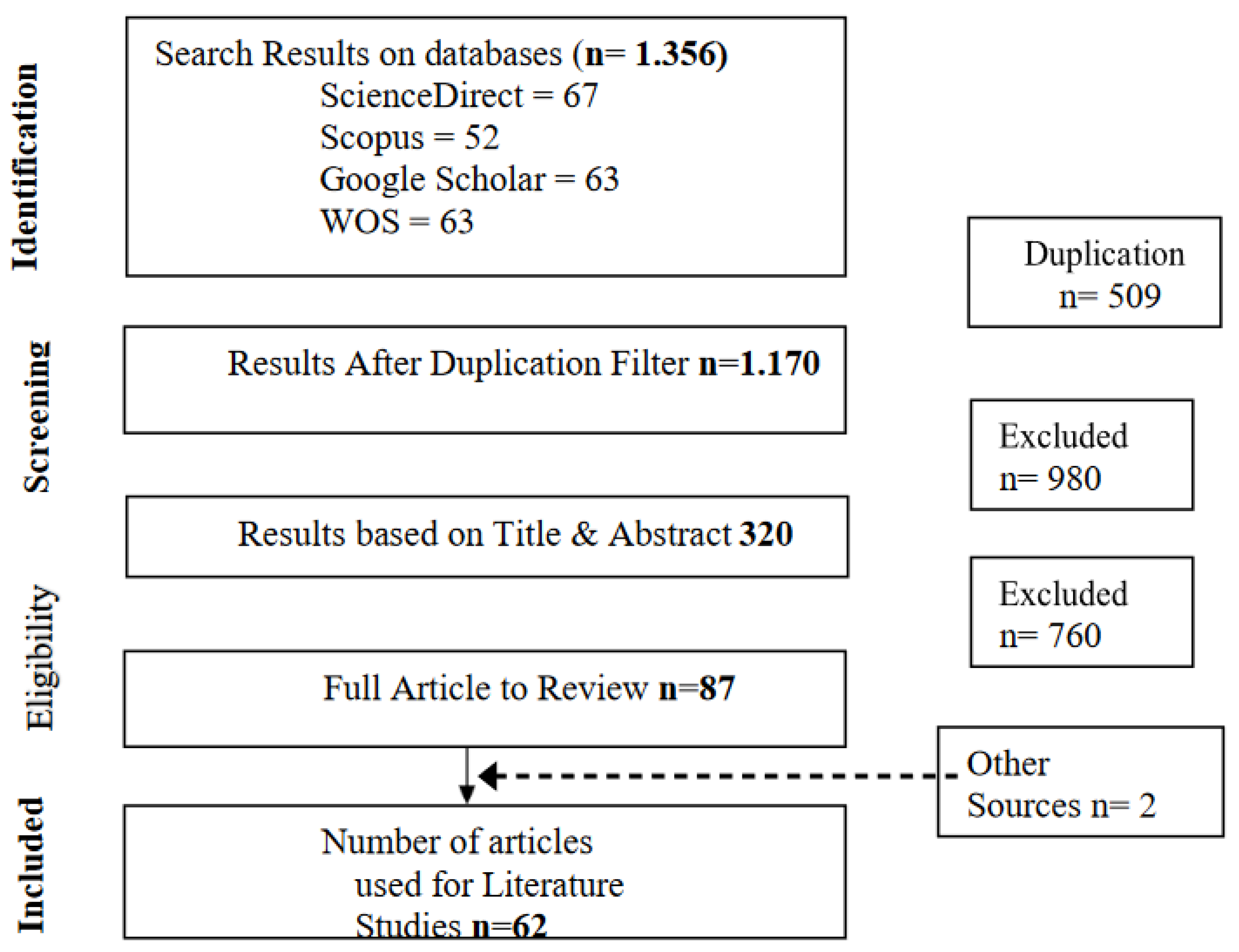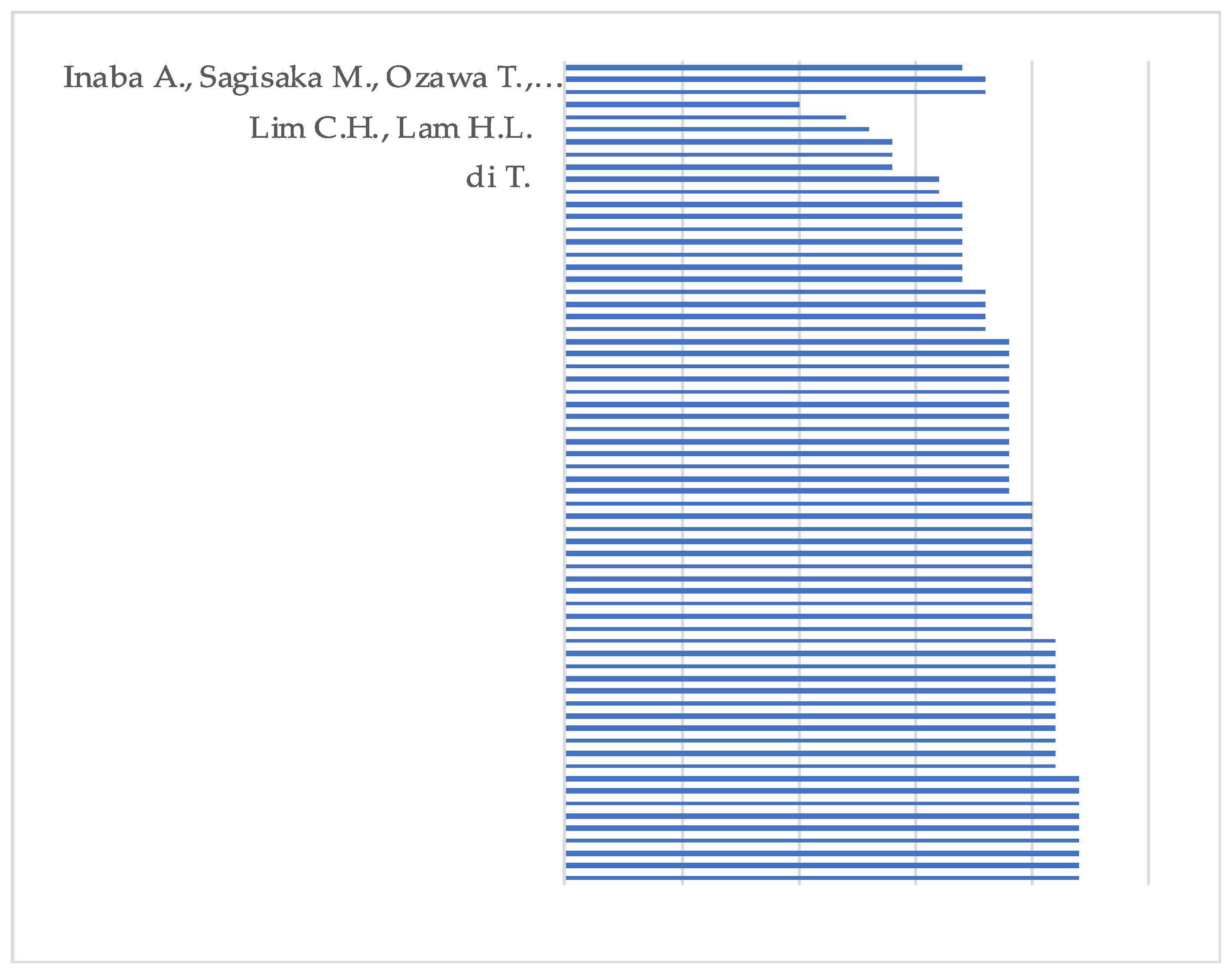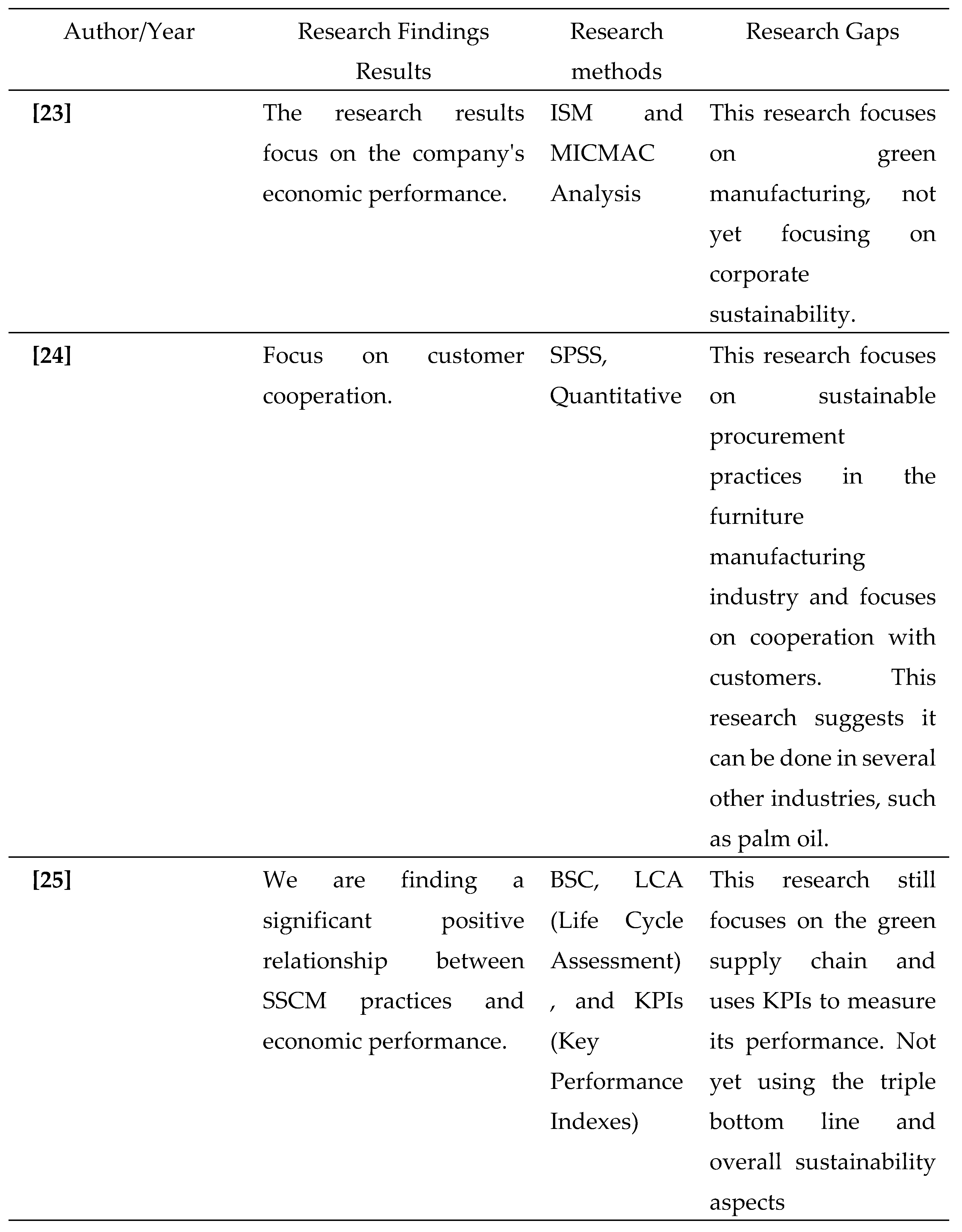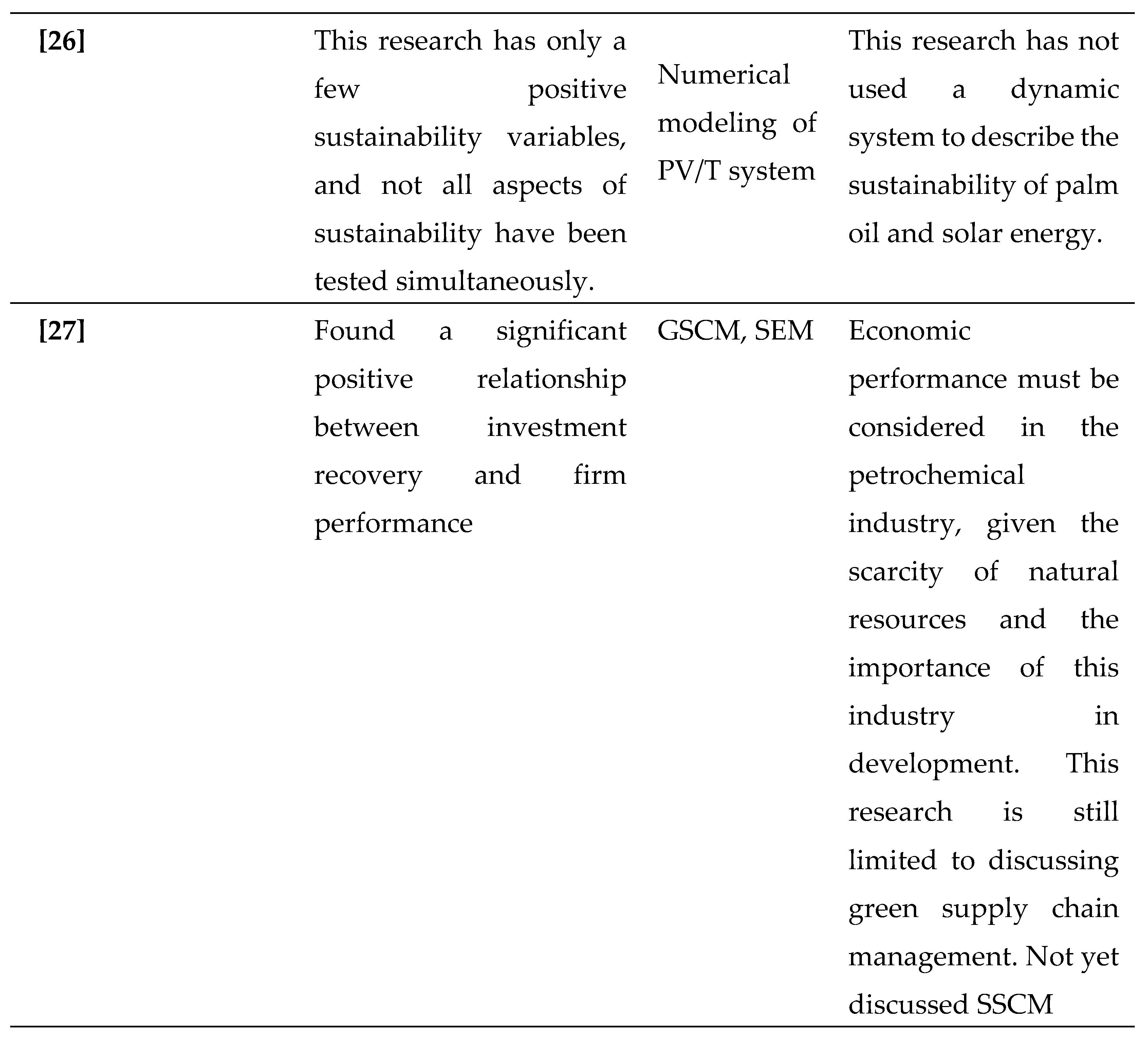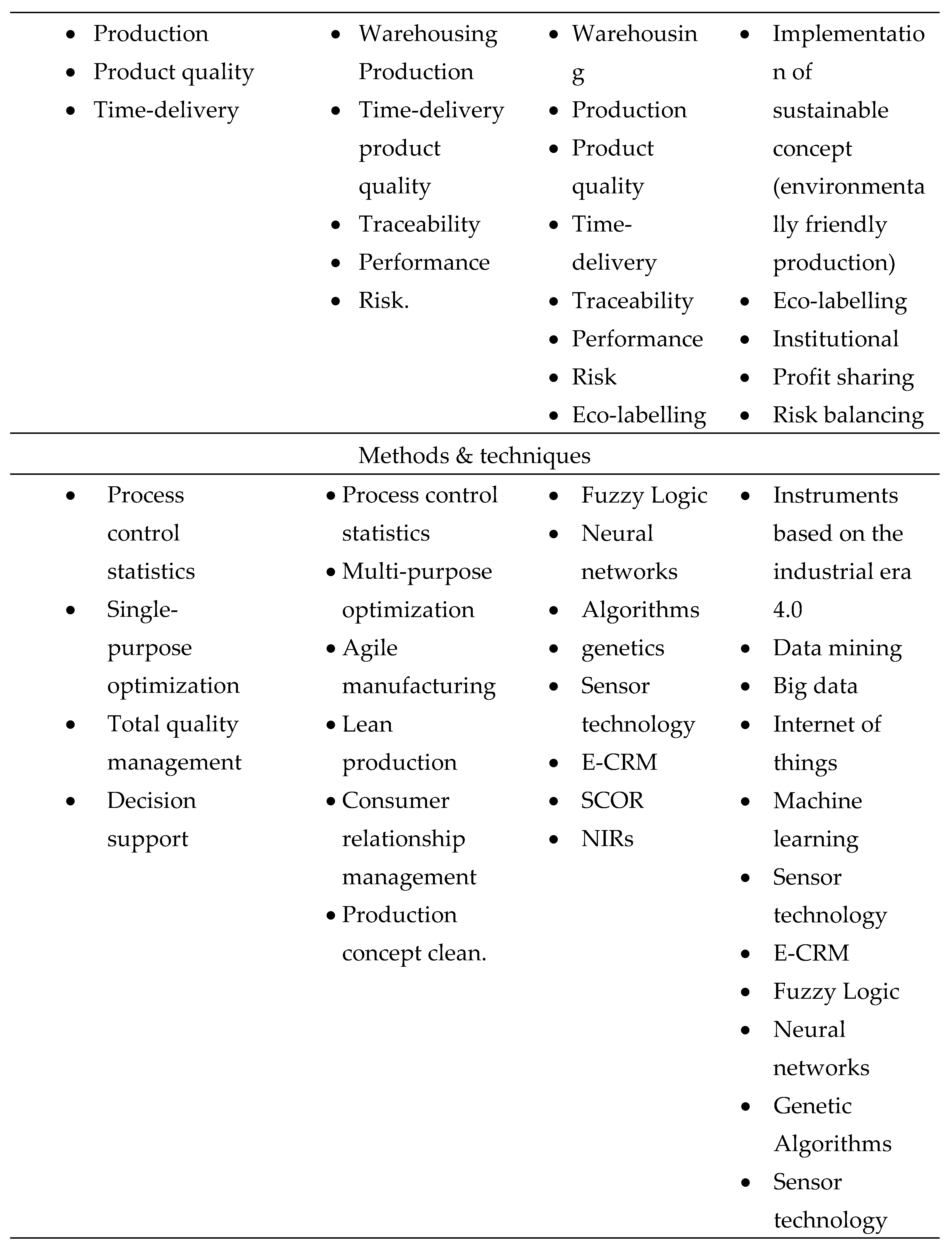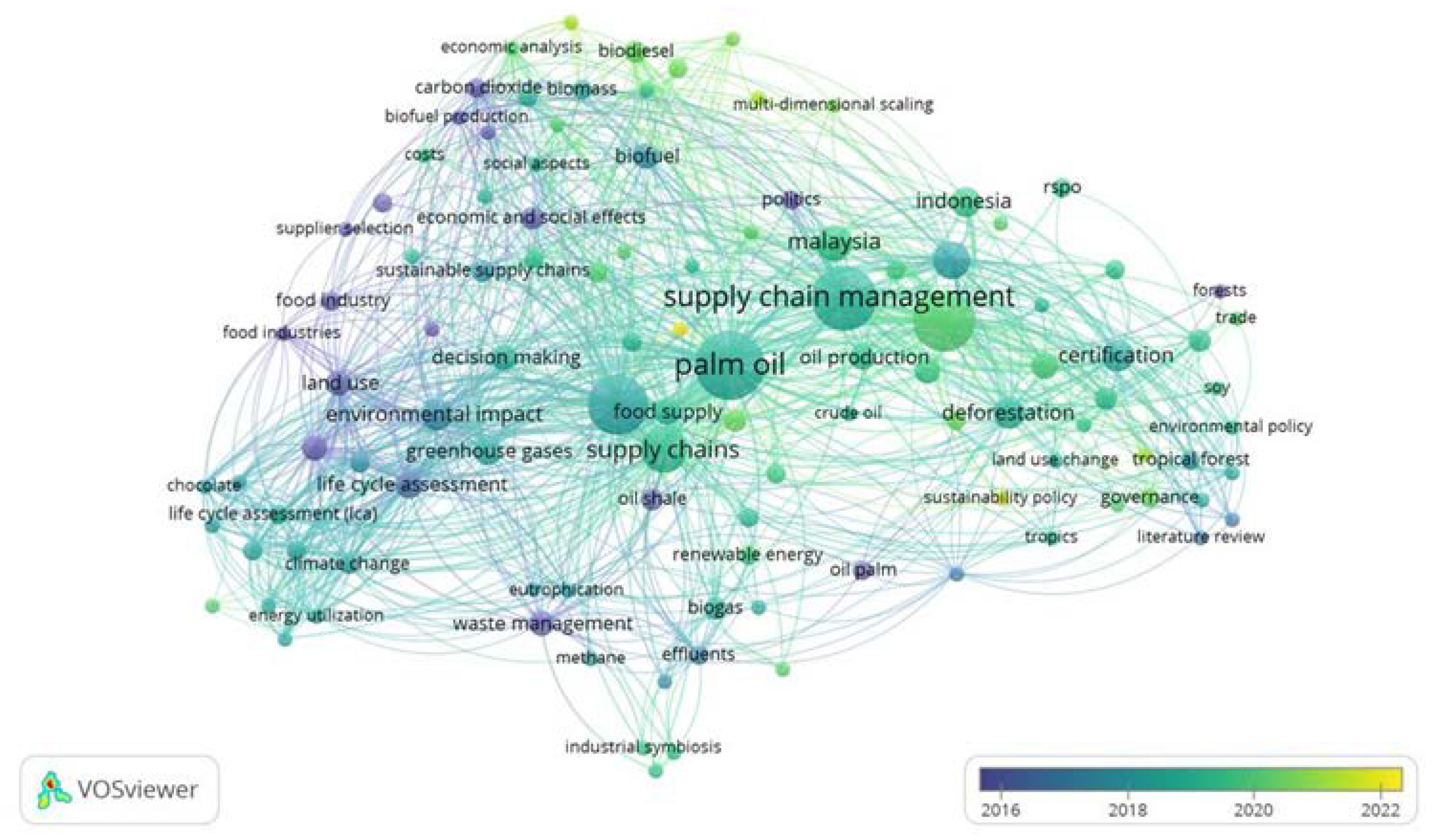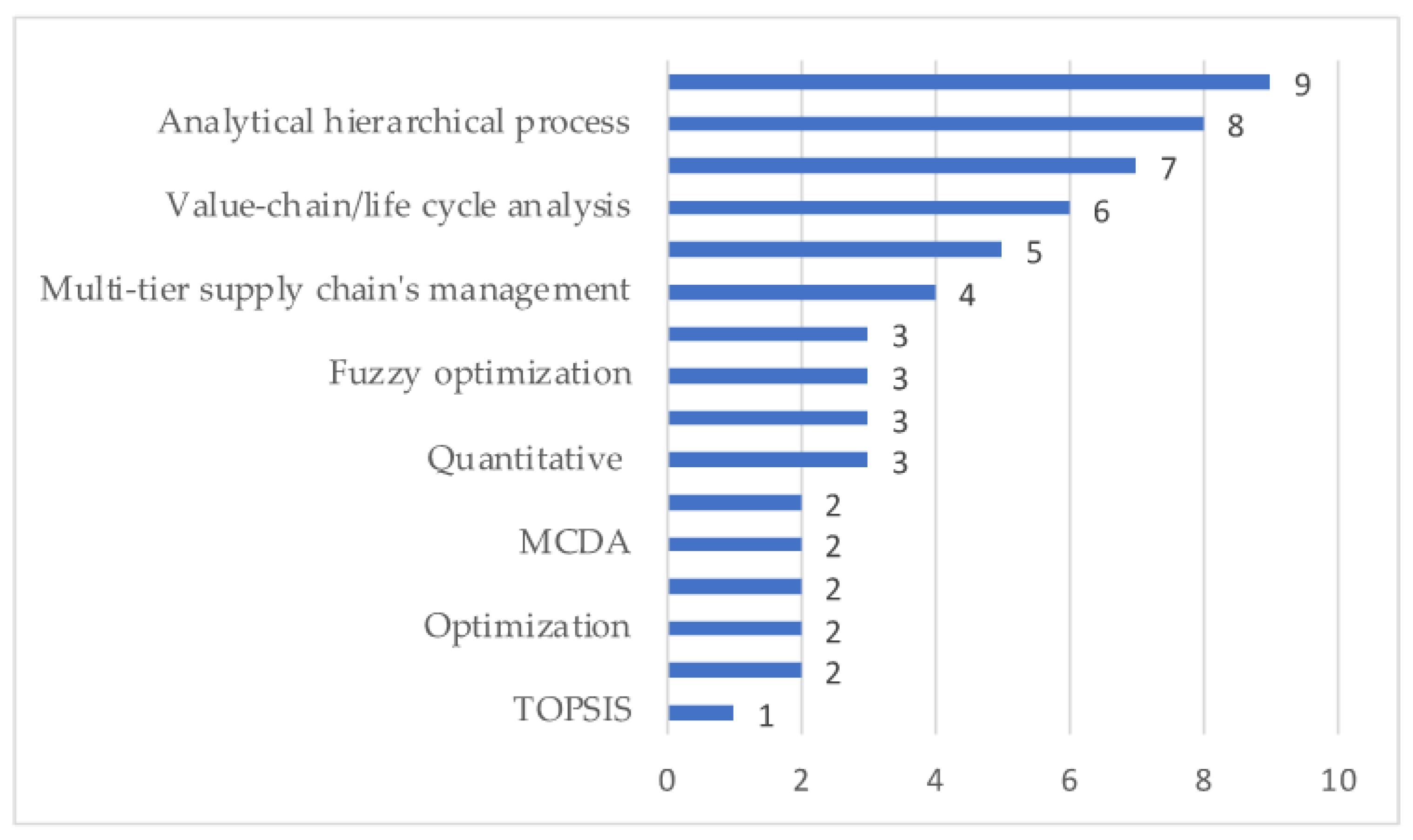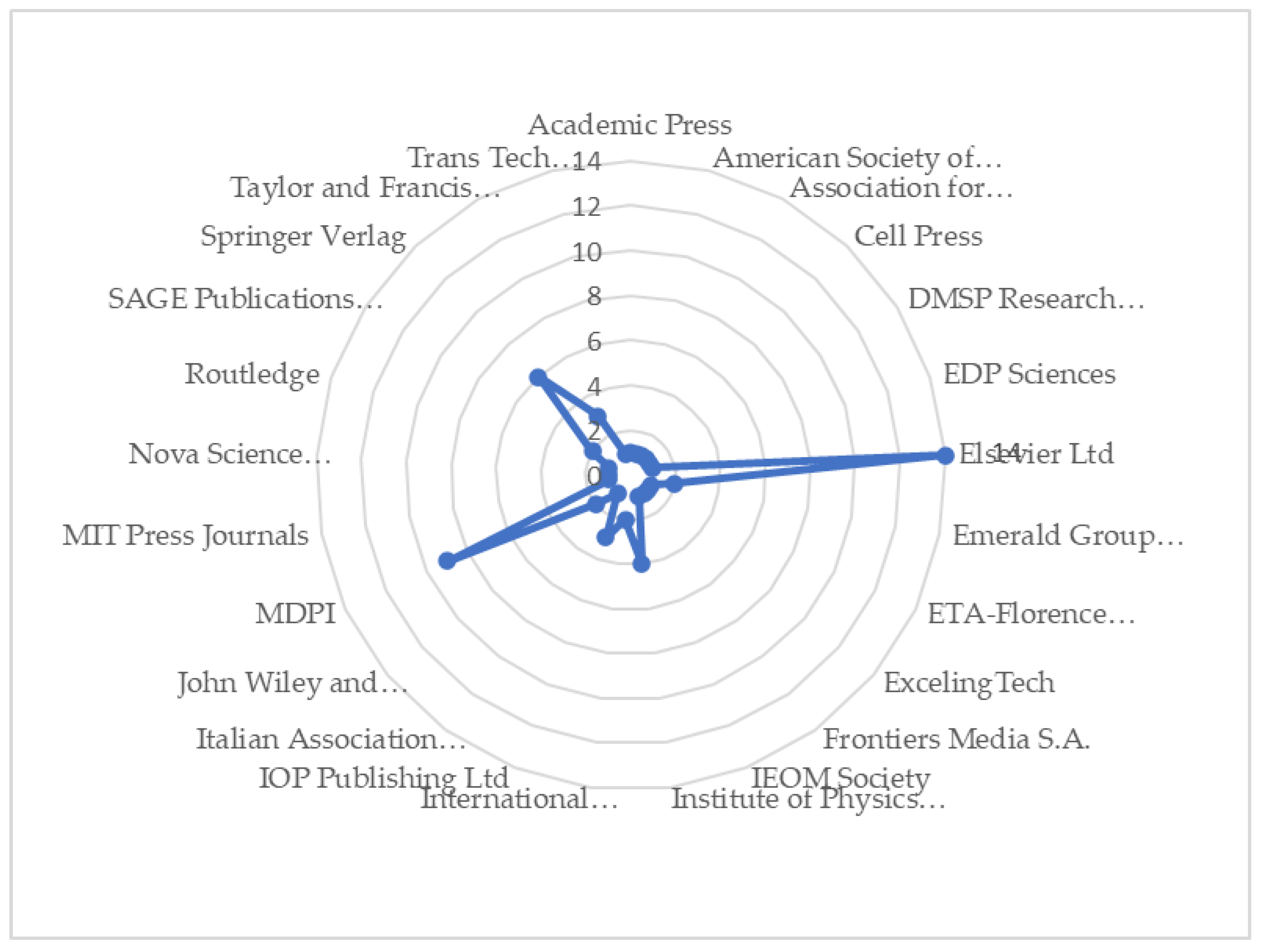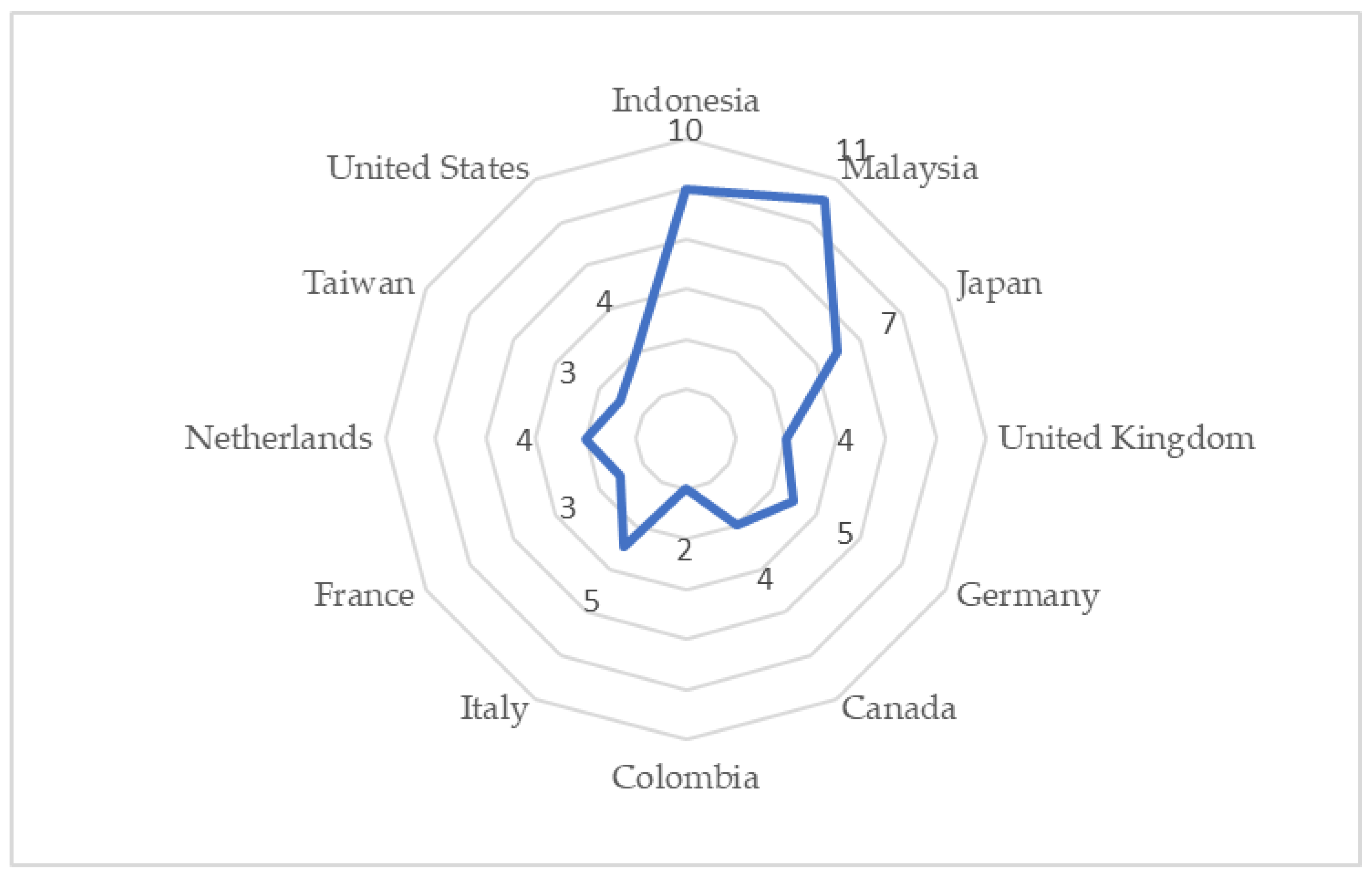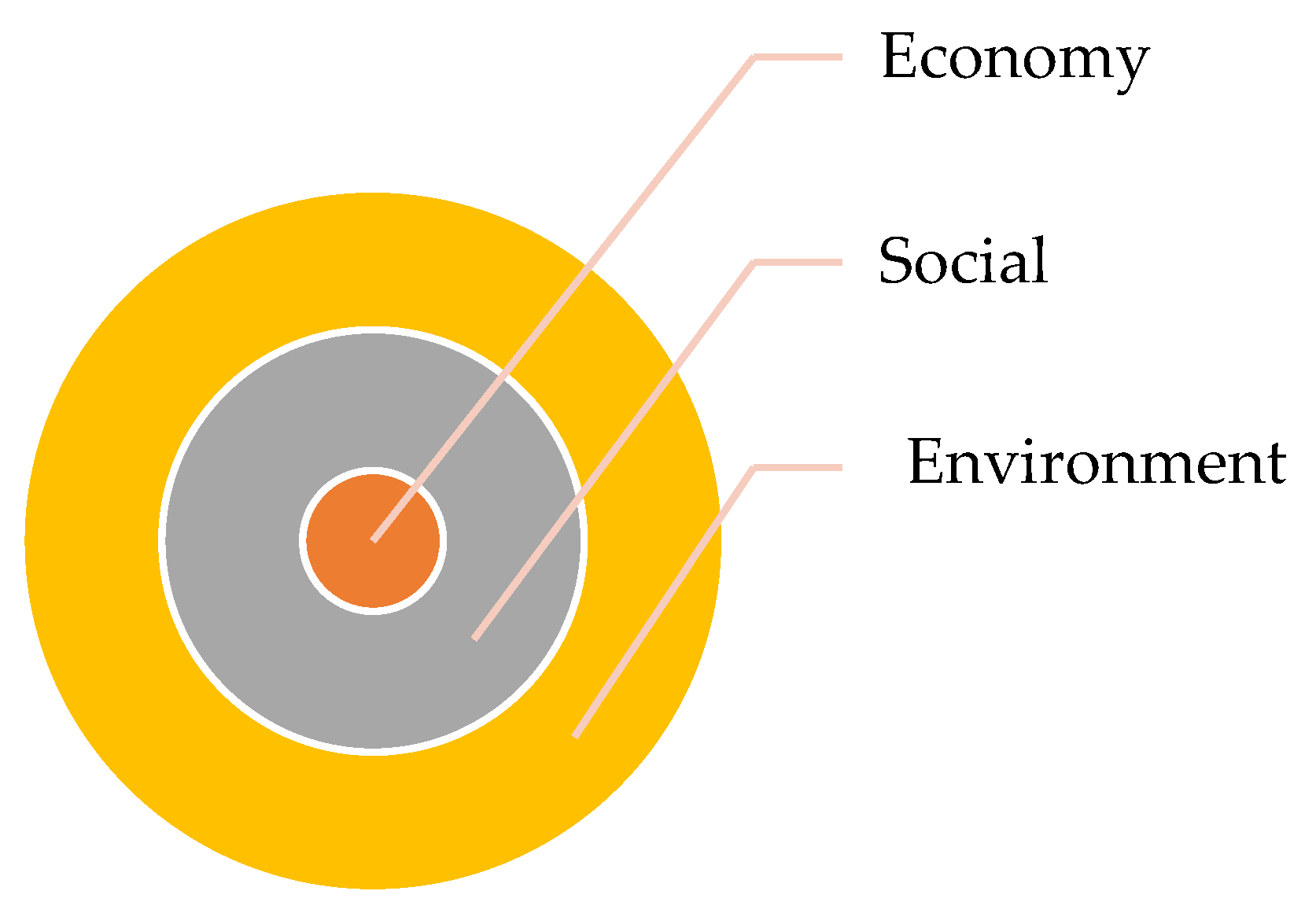1. Introduction
Palm oil is one of the most widely used vegetable oils in the world, with many applications in food, cosmetics, and other consumer products. According to the [
1], palm oil is one of the world's most widely used vegetable oils. In 2022, global palm oil production is projected to reach 76.5 million metric tons, accounting for approximately 36% of the world's total vegetable oil production. Palm oil is used in various food and non-food products, including cooking oil, margarine, chocolate, baked goods, cosmetics, and biofuels. The top palm oil producers are Indonesia and Malaysia, which account for around 85% of global palm oil production. Other countries that produce significant amounts of palm oil include Thailand, Colombia, and Nigeria. The demand for palm oil is expected to grow due to its versatility and relatively low cost compared to other vegetable oils. However, palm oil production's environmental and social impacts have led to increased scrutiny and efforts to promote sustainable palm oil production practices.
Figure 1.
Consumption of vegetable oils worldwide from 2013/2014 to 2022/2023. Source: United States Department of Agriculture (USDA), 2023.
Figure 1.
Consumption of vegetable oils worldwide from 2013/2014 to 2022/2023. Source: United States Department of Agriculture (USDA), 2023.
However, the rapid expansion of palm oil production has led to significant environmental and social impacts, including deforestation, habitat destruction, and human rights abuses. There has been growing global concern about the sustainability of palm oil production and supply chain in recent years. Governments, NGOs, and industry stakeholders have addressed these concerns through sustainability certification schemes, voluntary commitments, and other initiatives. However, there is still much debate and controversy around the effectiveness and impact of these efforts.
Sustainability Supply Chain Management (SSCM) is a critical aspect of modern business operations, and its implementation has become increasingly important in ensuring that companies meet their sustainability goals. In recent years, there has been growing concern about palm oil production's environmental and social impact, prompting researchers to conduct systematic literature reviews (SLRs) on the SSCM performance of palm oil products.
To better understand the state of knowledge on sustainability and supply chain management of palm oil, researchers have conducted systematic literature reviews (SLRs). SLRs are research methods that synthesize and analyze existing literature on a specific topic. They provide a comprehensive and structured overview of the available evidence and help to identify gaps and opportunities for future research. One example of an SLR on sustainability and supply chain management of palm oil is the study by [
2]. The authors comprehensively reviewed the literature on sustainable palm oil production and supply chain, focusing on environmental, social, and economic sustainability issues. They analyzed 140 articles published between 2004 and 2018, using a systematic approach to identify key themes and trends in the literature.
The study by [
3] found a growing body of literature on sustainable palm oil production and supply chain, reflecting the increasing global concern for sustainable development. The authors identified several key themes and trends in the literature, including Environmental sustainability: The literature highlighted the negative environmental impacts of palm oil production, including deforestation, biodiversity loss, soil erosion, and greenhouse gas emissions. Many studies also examined the potential for sustainable palm oil production practices, such as agroforestry and integrated landscape management, to reduce these impacts. Social sustainability: The literature also addressed the social impacts of palm oil production, including land rights, labor conditions, and community development. Several studies examined the effectiveness of certification schemes and other initiatives to improve social sustainability in the palm oil sector.
Economic sustainability: While environmental and social sustainability has been the focus of much research on palm oil, the authors found that economic sustainability has received relatively little attention. The literature highlighted the importance of ensuring that palm oil production is economically viable for smallholders and other stakeholders and identified several challenges and opportunities for achieving economic sustainability.
The performance of sustainable supply chain management of palm oil products is seen as an ideal concept in the palm oil business, which certainly takes a long time to reach optimum conditions. So far, sustainable supply chain management of palm oil has only entered the initial development stage, such as implementing the Green Supply Chain (GSC). The new GSC focuses on implementing environmentally friendly development strategies yet focuses on all aspects of sustainability. Therefore, many things in implementing sustainable palm oil supply chain management have yet to be fully known, such as the indicators or metrics used to assess the effectiveness of the implementation of palm oil supply chain management in terms of the triple bottom line. In addition, the factors that affect the performance of sustainable supply chain management of the palm oil industry still need to be properly identified. In addition, the palm oil industry can have implications for domestic problems such as social conflicts around access to land and differences in crop yields [
4]. These issues highlight sustainable development as economic, social, and environmental integration in the palm oil industry, especially for downstream palm oil product industries. This is the main reason for this research to reveal how to be sustainable in this latest trend of palm oil business models.
In order to improve palm oil supply chain management, the palm oil industry needs to work in an integrated and systemic manner so that the palm oil industry can operate optimally in the long term. This improvement effort can be started by changing the approach pattern of the palm oil industry in production activities by increasing the performance of sustainable supply chain management. The sustainable palm oil industry is applying the concept of sustainable agriculture, namely an agricultural system oriented towards economic, social, and ecological balance. This demand was responded to by applying the RSPO and ISPO in implementing palm oil business activities. However, so far, many industries are still not sustainable, so the negative impact of the palm oil industry is still being felt in various regions. The haze disaster resulting from land fires in the oil palm plantation area, the use of child labor, land conflicts, and common labor welfare are the implications of an unsustainable industry [
5].
[
6] found a growing body of literature on the SSCM performance of palm oil products, reflecting the increasing global concern for sustainable development. The authors identified several key themes and trends in the literature, including Environmental sustainability: The literature highlighted the negative environmental impacts of palm oil production, including deforestation, biodiversity loss, soil erosion, and greenhouse gas emissions. Many studies also examined the potential for sustainable palm oil production practices, such as agroforestry and integrated landscape management, to reduce these impacts.
Social sustainability: The literature also addressed the social impacts of palm oil production, including land rights, labor conditions, and community development. Several studies examined the effectiveness of certification schemes and other initiatives to improve social sustainability in the palm oil sector. Economic sustainability: The literature highlighted the importance of ensuring that palm oil production is economically viable for smallholders and other stakeholders and identified several challenges and opportunities for achieving economic sustainability.
The study by [
6] also identified several challenges and gaps in the literature. For example, while there is a growing body of research on the SSCM performance of palm oil products, much of this research is focused on environmental sustainability, and less attention has been paid to social and economic sustainability. Additionally, there is a lack of consensus on what constitutes "sustainability" in the palm oil sector, and there is a need for more research to develop clear and measurable indicators of sustainability. Other studies have also explored the SSCM performance of palm oil products. For example, the review by [
7] titled "Sustainable supply chain management of palm oil products: A Review" analyzed 142 articles published between 2004 and 2018. The study found that while there has been progress in addressing sustainability issues in the palm oil sector, there are still significant challenges and gaps in knowledge. The authors identified several areas for future research, including the need for more research on the social and economic sustainability of palm oil production and more effective governance and policy frameworks to address sustainability challenges. The study by Adwiyah, R et al. (2022)" [
8] analyzed 29 articles. Recognizing that the sustainable supply chain performance of the palm oil industry influences the development of its downstream industry and that there is competition between actors in the supply chain, the mechanism for measuring the sustainable performance of the palm oil industry is important. Currently, more than the sustainable performance of the palm oil industry is needed to increase productivity and the competitiveness of palm oil products globally. Based on this, research on measuring the sustainable performance of the palm oil industry in a more in-depth supply chain will be very useful in providing input for the development of the palm oil industry.
4. Result And Discussion
4.1. Descriptive Analysis from the Selected Journals
This research is strengthened by several previous studies, which suggested the performance measurement of sustainable supply chain management in companies in several countries. According to several researchers, a sustainable supply chain is the most important thing in improving the performance and competitiveness of palm oil products. As a link framework between previous studies and current research, it can be seen in
Figure 4:
The first cluster contains articles published in 2014 discussing the topics of certification-environmental impact-reverse logistics-product design. The second cluster is articles published in 2050-2016 and discusses the topics of benchmarking-supply chains-supply chain-environmental management-sustainable development-palm oil-supply chain management. The third cluster contains articles published in 2018-2021, and the topic discussed is Supply chain management-sustainable supply chain management-sustainability-manufacture-performance measurement-sustainable. Previous studies on the performance of sustainable supply chaos in the palm oil industry were mostly carried out at the level of financial or economic performance. Studies on sustainable supply chain performance in the palm oil industry are still very limited. If we did a search on the Sciencedirect database with the keywords “Sustainable Supply Chain” AND “performance” AND “Palm oil” over the year, only 67 results were found and only 10 were considered the most relevant to the topic. So that it can be said that there is still tension on the topic of sustainable supply chains in the palm oil industry in relation to performance. From the limited data it is known that sustainable supply chains in the palm oil industry have a positive effect on company performance. However, this still needs to be proven further.
Previous researchers include: [
17] who identified that productivity is considered the key to establishing a more sustainable palm oil industry. According to [
18] the results of his research show that palm oil companies will not compete with rivals except by implementing superior supply chain performance in a highly competitive environment. Other studies conducted by [
14] show results that palm oil companies will not compete with rivals except by implementing superior supply chain performance in today's highly competitive environment. and no research has been conducted to analyze the influence of supply chain strategy on supply chain performance in the presence of simple production and using six sigma, 80 Malaysian palm oil companies have been surveyed to obtain a useful model for producers to achieve substantial supply chain performance. This finding proves that palm oil companies apply many suppliers, but if they apply a few suppliers it is more likely to get superior supply chain performance, but vertical integration is not good enough to provide good results for supply chain performance.
In the study conducted by [
19], it was found that PT. X utilized the SCOR (Supply Chain Operations Reference) method and employed the snorm de Boer formula for normalizing the process to calculate indicators. The questionnaire results were used to determine the weights of each matrix using the Analytic Hierarchy Process (AHP) method. The calculated performance value obtained was 67.95, indicating that PT. X's achievement in sustainable supply chain management performance is considered moderate and requires improvement, particularly for indicators with low values.
Further research recommendations include incorporating additional supply chain performance indicators beyond raw materials, such as reliability, responsiveness, flexibility, internal costs, assets, and broader SCM flows involving suppliers, distributors, retailers, and end customers. This expanded approach aims to obtain more accurate SCOR-based supply chain performance calculations, which can serve as a reference for formulating future strategies and targets. Another study by [
20] proposes a design for a supply chain measurement model that incorporates the three dimensions of sustainability (economic, social, and environmental) simultaneously, utilizing a sustainable adjusted balanced scorecard approach. At X-Corporation, the customer perspective was found to have the highest weighted importance, followed by financial, human resource development, and internal process perspectives.
Figure 5.
Distribution Across Reviewed Authors And Timeframe, 2023.
Figure 5.
Distribution Across Reviewed Authors And Timeframe, 2023.
Based on the results of a systematic literature review, it can be seen from the results of searching and synthesizing previous research articles that there is a trend of increasing scientific interest in sustainability in SSCM, showing that 87% of articles on the topic of SSCM are at the concept level which supports the strengthening of theory. 13% are at the practical level (empirical study of implementing innovation systems). However, in practical articles, no analysis collaborates all dimensions of supply chain management sustainability-oriented from upstream to downstream by involving inter-network actors. Picture. 5 depicts the distribution of articles over the period under review. The articles mentioned were considered for this review and distributed in 62 journals in several research domains. The presence of SCM research in journals outside the operations management domain may reflect the growing importance of supply chains concerning competitive advantage [
21] as well as increasing recognition by academics in the various fields of supply chain management exists to address sustainability issues [
22].
Figure 6 presents the journals considered in this study's data set.
Based on
Figure 6, it can be seen that the analysis used in the journals considered in this research data set is Fuzzy Analytical Hierarchy Process analysis, a method that combines analytic hierarchy process techniques and fuzzy theory, which can be used in making decisions, followed by analysis, AHP ( Analytical hierarchical process), AHP is a hierarchical decision-making method (level) selected from various criteria and alternatives, then the priorities of each of these alternatives are considered, which alternative is considered the best based on the objectives to be achieved.
While the type of document used is an article,
Figure 8 presents the distribution of articles by journal publishers used in this study.
Based on
Figure 8 and
Figure 9 above, it can be seen that the distribution of published articles is dominated by publisher Elsevier Ltd which is a Dutch academic publishing company specializing in scientific, technical, and medical content. In addition, MDPI publishes more than 390 open-access journals. MDPI is one of the world's largest publishers in terms of output of journal articles and is the largest publisher of open-access articles, with the most author affiliations in Malaysia and Indonesia.
4.2. Research Trends and Issues
The research trend in the field of Sustainability Supply Chain Management (SSCM) performance of palm oil products has been on the rise due to the increasing demand for sustainable practices in the industry. One of the key issues being addressed by researchers in this field is the need to balance economic performance with environmental and social sustainability. This is particularly important in the palm oil industry, known for its negative environmental impact and social issues such as land grabbing and labor exploitation. Another research trend in SSCM performance of palm oil products is the use of certification schemes such as the Roundtable on Sustainable Palm Oil (RSPO) and the Indonesian Sustainable Palm Oil (ISPO) to promote sustainability practices. However, the effectiveness of these certification schemes has been questioned by some researchers who argue that they must go further in addressing the root causes of sustainability issues in the industry. Additionally, there is a growing interest in the role of stakeholders in promoting sustainability in the palm oil supply chain, particularly through multistakeholder initiatives such as the High Carbon Stock Approach (HCSA) and the Palm Oil Innovation Group (POIG).
Other issues being addressed in this field include using alternative land-use strategies such as agroforestry and the need for better traceability and transparency in the palm oil supply chain. Overall, the research trend in SSCM performance of palm oil products is towards finding more sustainable and socially responsible practices in the industry while addressing economic concerns.
One of the important aspects in a research is the novelty of the research being carried out. The basic concept of sustainable supply chain management research is the triple bottom line (TBL) which addresses the economic (profit), environmental (planet) and social (people) dimensions. The initial basis of the Sustainable Supply Chain Management framework is the intersection between these three dimensions (
Figure 10) which refers to Liu et al. (2017). The basis of this study is the importance of looking at developments in the scientific field of supply chain management in a unit of time (road-map) so that the study gap (research-gap) can be seen clearly (
Table 2).
As depicted in
Figure 10, the interrelationship among sustainability aspects in a sustainable supply chain management system no longer follows a segmented structure, but rather represents a unified entity. This indicates that there is no longer any segregation or distinct boundaries within each aspect, as illustrated in
Figure 10. The concept of "space" here refers to supply chain management activities that are not aligned with the principles of sustainability. On the other hand,
Figure 10 highlights that all activities within a sustainable supply chain management system should inherently embody sustainability principles, with equal significance given to economic, environmental, and social perspectives. The layers between each aspect do not imply varying degrees of importance between them.
Under specific circumstances, sustainability aspects can indeed occupy different layers. Apart from the three conceptual aspects within a sustainable supply chain system, the institutional aspect also holds significant importance when evaluating the performance of a sustainable supply chain, particularly in the case of agricultural products like palm oil. The rationale behind this is that adherence to a collective system enhances the negotiating power of actors involved in the sustainable supply chain, particularly benefiting farmers.
In the beginning, the scientific field of logistics systems, and was introduced as a scientific field by Oliver & Webber in the early 80's. Then continue to transform according to the dynamics that occur (commodities, methods and instruments), including the transformation of sustainable concepts in supply chain management. In this study it is found in
Figure 10 to be a new system
4.3. Research Gap Analysis
In the preparation of the Systematic Literature Review, there are several research gaps in this study, including: Given the rich empirical results in the extant SSCM literature, many attempts have been made to integrate them systematically (shiatsu wei chan 2018; Tundys & wiśniewski, 2018) synthesizing previous research with develop a variable sustainable supply chain strategy. Furthermore, Fahimnia et al. (2015) propose a comprehensive bibliometric analysis that graphically depicts SSCM theoretical developments, identifies current study focuses, and provides clues for future directions. Table 4.1 provides a detailed list of gaps in the research conducted:
4.4. Novelty
Sustainability Supply Chain Management (SSCM) has gained increasing attention in recent years due to the pressing need for organizations to address environmental and social issues associated with their supply chain operations. The palm oil industry, in particular, has faced significant criticism for its negative impact on the environment and local communities. This systematic literature review aims to contribute to understanding SSCM performance in the palm oil sector. The novelty of this study lies in its focus on integrating SSCM practices with performance measures in the palm oil industry. By analyzing the existing literature, this study identifies the key SSCM practices that positively impact the environmental, social, and economic performance of palm oil products. The findings of this study provide valuable insights for practitioners and policymakers seeking to improve the sustainability performance of the palm oil industry through effective SSCM practices. This study further examines the uniqueness of its approach by introducing a roadmap for supply chain management.
Table 2.
Roadmap supply chain management.
Table 2.
Roadmap supply chain management.
In general, future research topics in the scientific field of supply chain management based on sustainable palm oil products can be mapped into at least 3 scientific sub-fields based on the substance of agricultural commodities and the methods used. Method development is closely related to the implementation of industrial-era 4.0 instruments, such as big data, internet of things, internet of people, as well as several intelligent system-based techniques, such as fuzzy logic, artificial neural networks, and genetic algorithms.
4.5. Knowledge Contribution
The systematic literature review conducted in this study not only identifies research gaps in the field of Sustainability Supply Chain Management (SSCM) performance of palm oil products but also contributes new knowledge to the field. Specifically, the study highlights the importance of evaluating environmental, economic, and operational performance in the palm oil industry. Environmental performance is crucial for evaluating a company's profits and environmental impacts, as defined by Fang and Zhang (2018), and ISO 14001 identifies it as a measurable result of an organization's environmental management. Economic performance is a top priority for producers implementing SSCM, as it is an economic result that aims to achieve profits while also considering the effects of environmental measures. Meanwhile, operational performance measurement is necessary for customer satisfaction, internal processes, and activities. The study also notes that environmental performance has been implemented effectively in the palm oil industry in developed countries, as evidenced by the European Union's regulations on industrial manufacturers. However, developing countries must catch up on such procedures, affecting their environmental performance. This study contributes to the importance of evaluating multiple performance aspects in the palm oil industry and highlights the disparities in environmental performance between developed and developing countries. The authors of the study draw on previous research by Fang and Zhang (2018), Sun et al. (2020), Tundys and Wiśniewski (2018), Lin et al. (2011), and Wan Mahmood et al. (2013) to support their findings. The study "Sustainability Supply Chain Management (SSCM) Performance of Palm Oil Products: A Systematic Literature Review" by Abdullahi Ahmed and Mohammad T. A. Aldhaibani (2021) makes a significant contribution to the existing body of knowledge on SSCM performance in the palm oil industry. The authors conducted a systematic literature review and synthesized the current research on SSCM practices and their impact on the sustainability performance of palm oil products. The study's knowledge contribution lies in identifying the specific SSCM practices that positively impact the environmental, social, and economic performance of palm oil products. The authors found that supplier selection, green procurement, eco-design, and stakeholder engagement positively impact the sustainability performance of palm oil products. Furthermore, the study emphasizes the importance of integrating sustainability considerations throughout the palm oil supply chain, from production to consumption, to achieve sustainable palm oil production. The authors' recommendations for improving sustainability performance in the palm oil industry provide valuable insights for practitioners and policymakers seeking to promote sustainable palm oil production.
Author Contributions
Conceptualization, A.R.; supervision: S.Y.; methodology, I.D. and M.H. ; validation, S.Y., I.D., M.H.; formal analysis, A.R.; investigation, A.R.; data curation, A.R.; writing— original draft preparation, A.R..; writing—review and editing, all.; visualization, A.R.; proofread, S.Y., I.D., M.H.; project administration, A.R. Supervision: S.Y., I.D., M.H.; methodology: A.R., S.Y., I.D., M.H.; investigation: S.Y., I.D., M.H. proofread: S.Y., I.D., M.H. All authors have read and agreed to the published version of the manuscript.
